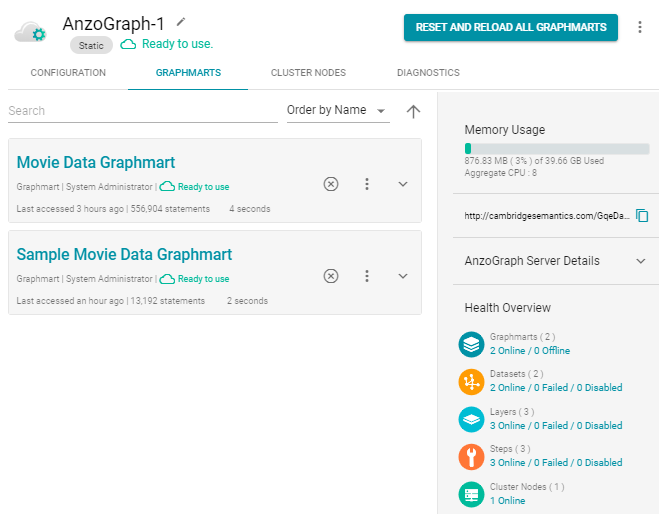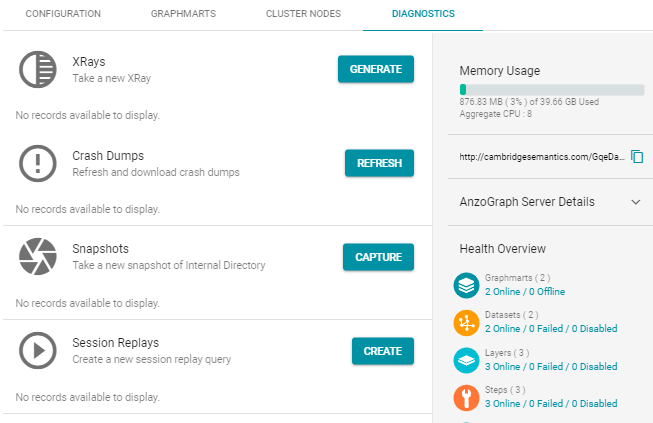Retrieving AnzoGraph Diagnostic Files
When Cambridge Semantics Support requests AnzoGraph diagnostic files for troubleshooting an issue, you can quickly retrieve the files from the Diagnostics tab on the AnzoGraph Administration page in the Anzo console. This topic provides information about the AnzoGraph diagnostics and instructions for retrieving the files.
Introduction to AnzoGraph Diagnostic Files
There are two types of AnzoGraph diagnostic files:
- XRay: XRays are generated on-demand. If you encounter an error and the database remains running, you generate an XRay to produce the diagnostic files.
- Crash Dump: If you encounter an error that crashes the database, AnzoGraph automatically generates a crash dump that contains diagnostic information about the crash.
Xrays and crash dumps are valuable tools that enable Cambridge Semantics to diagnose and fix issues without access or any other visibility into a customer’s data or database system. They can also be used to report on overall and detailed system performance, resulting in improved query performance for future releases of AnzoGraph.
Xrays and crash dumps harvest the diagnostic data that is stored in AnzoGraph's system tables. They include information such as:
- A low level, de-identified log of the requests that were sent to the database.
- Statistics like query operation step execution times, number of rows processed, and amount of memory used.
- Detailed but de-identified trace information for errors that were encountered.
- Configuration information such as the number of nodes in the cluster and AnzoGraph system settings values.
Xrays and crash dumps are designed to be anonymous and can be safely shared with Cambridge Semantics Support. They do NOT capture user information or any of the data that is loaded into memory by a user, nor do they expose details that could be used to reveal the nature of the data being queried.
Retrieving the Files
Follow the instructions below to download an xray or crash dump to send to Cambridge Semantics Support.
- In the Anzo console, expand the Administration menu and select AnzoGraph. Anzo displays the list of the configured AnzoGraph instances.
- Click the name of the AnzoGraph instance for which you want to download an xray or crash dump. Anzo displays the graphmart details for the instance. For example:

- Click the Diagnostics tab. Anzo displays the available options. For example:

- If you want to retrieve an xray, click the Generate button. Anzo creates the xray and produces a tarball with a .xray extension. For example:

Click the xray file name to download the tarball to you computer for sending to Cambridge Semantics.
Note: The files in the tarball are compressed. Do not compress the .xray file before sending it to Cambridge Semantics.
- If you want to retrieve a crash dump, click the Refresh button to refresh the list of available crash dump .xray files. Click the file name that you want to download. Anzo downloads the file to your computer.